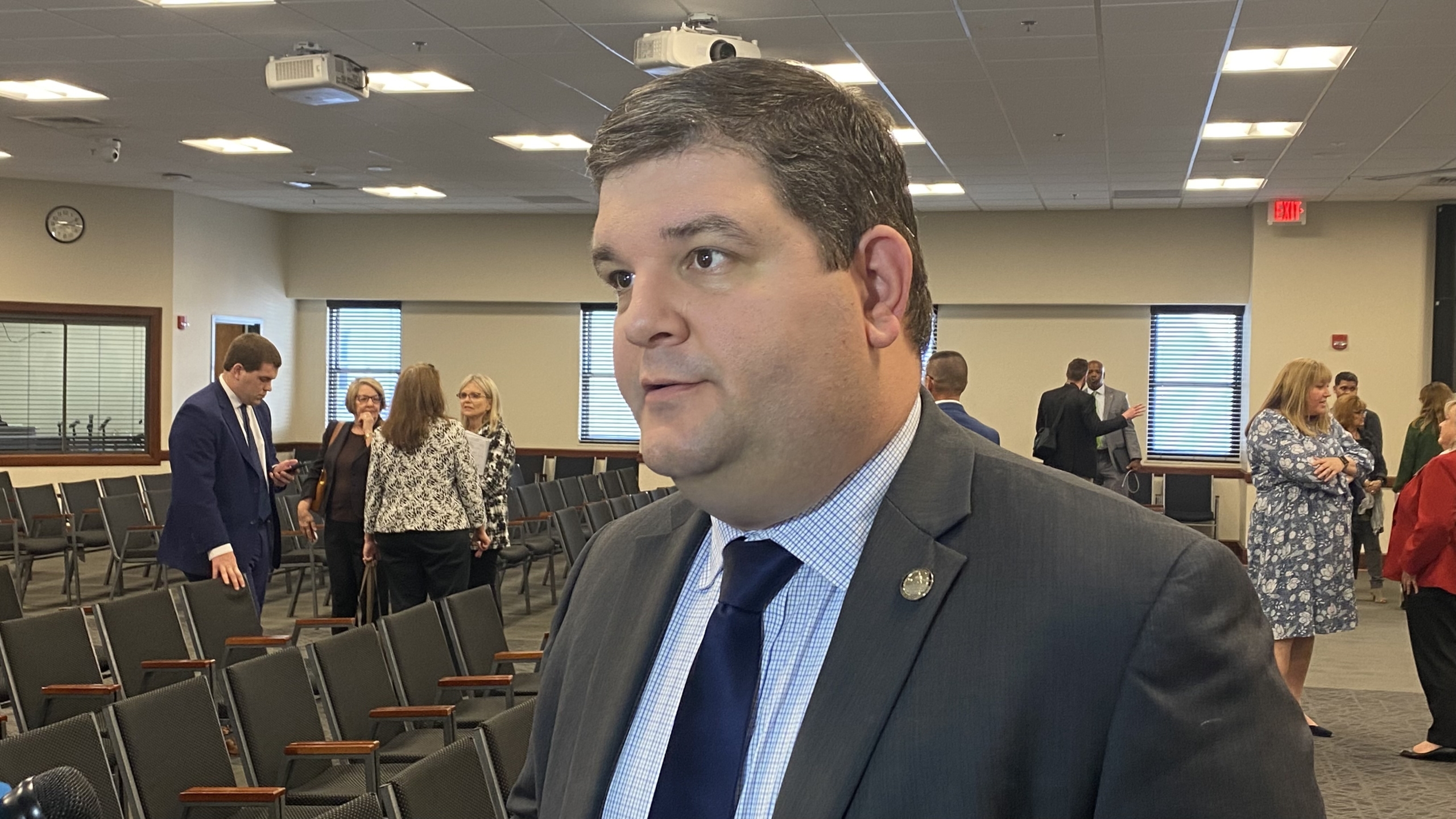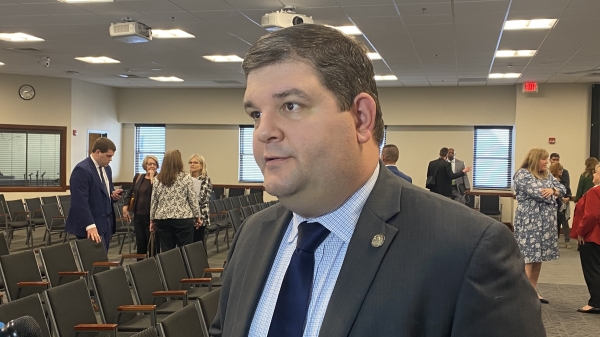|
Getting your Trinity Audio player ready...
|
A House committee on Wednesday gave approval to a bill seeking to overhaul Alabama’s ethics laws, but members seemed skeptical of parts of the bill and even the sponsor called it a “work in progress.”
The bill, HB227, sponsored by Rep. Matt Simpson, has drawn more than its fair share of criticism from all corners even before it was officially introduced. The version that landed in the House Ethics and Campaign Finance Committee on Wednesday was a reworked and redefined bill that Simpson said addressed many issues that had been brought to him.
However, the changes still haven’t addressed some of the biggest issues with the bill, such as removing criminal penalties for many current ethics violations and placing the now-independent Ethics Commission executive director under the oversight of the legislature.
“I just want to say that we’re about to vote this bill out of committee and it is still very much a work in progress,” Rep. Chris England said near the end of the meeting. Simpson agreed.
Simpson covered many of the changes to the bill that have been implemented since the legislative session began. Two significant fixes included reinstating a cap – of $500 per year – on gifts that public officials can receive and better defining family members that are barred from receiving public contracts from a public official relative.
Simpson said both changes originated from detractors of the bill, who reached out to him to point out the obvious flaws.
England said he wants to see additional changes made to a provision in the new law that would allow the legislature to impeach the Ethics Commission’s executive director. Under Simpson’s bill, as filed currently, the legislative councils of both the House and Senate could undertake impeachment proceedings and remove the executive director.
(An early version of the bill also made it possible to remove Ethics Commission commissioners through the same process, but that section of the law was removed, Simpson said.)
England said he found it troubling that a council of 20-22 lawmakers, instead of the entire body, could hold such a vote.
“I think it’s a very powerful motivator when someone says to a room of people of that size, “you could be next,” England said. “That person could be under investigation and the rest of the members are unaware that’s taking place. I believe with something that important, you need as many people involved as possible.”
Simpson pledged to work with England and other lawmakers to address any concerns.
However, the bill has lost one of its early supporters — Alabama Attorney General Steve Marshall. In a statement posted on social media by al.com, Marshall said the bill would weaken the prosecutorial powers of his office while “further empowering an Ethics Commission run amok.”
Marshall has been at odds with the Commission for the last two years, and has sued the Commission over its position related to providing exculpatory evidence to those under investigation. A source familiar with the ongoing feud said Marshall’s issues with the Commission began after it ruled that federal political action committees that participate in PAC-to-PAC transfers are barred from giving to Alabama candidates under state’s ban on such transfers.
If adopted, the changes in Simpson’s bill would not go into effect until 2025.




















































